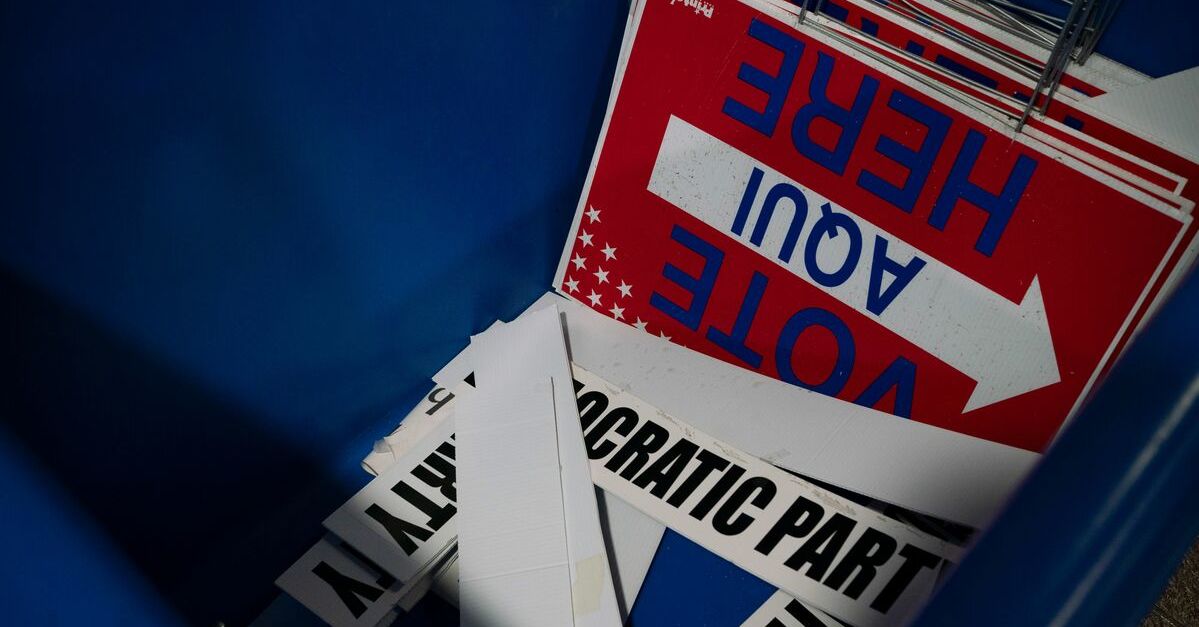
The stars at night struggled to shine through the rain in many places across the Lone Star State, where legions of Texans struggled to vote—many of them waiting several hours to cast their ballot in the 2020 Democratic Party presidential primary.
Forty-five minutes.
Two-and-a-half hours.
Five hours.
Seven.
Seven hours to vote—almost an entire working day spent in an attempt to exercise the franchise. Most people wouldn’t put up with it. And, in Texas, many people didn’t. They simply walked away or, relying on the generally unreliable information about wait times on county websites, didn’t bother at all.
One man who stuck it out for the entirety of the terminal wait was Hervis Rogers. He eventually cast his ballot at Texas Southern University (TSU), one of the largest historically black universities in the country and home to a largely African American and Latino student body.
“When polling places are deliberately shut down to force working people to wait HOURS to vote, it’s a poll tax,” tweeted Reverend Cornell William Brooks. “The time STOLEN from your job, and time STOLEN from your paycheck is a #SuperTuesday poll tax. This is a #2020 violation of the 24th Amendment. #VoterSuppression.”
The average wait time at TSU, a staple of the Houston community, started at around two hours but gradually increased to more than four hours as time slowly ticked by and more and more voters made it out to the woefully unprepared and underfunded location.
But why?
Mainly because there weren’t enough machines. Additional voting booths were belatedly trafficked in to TSU—nearly three hours after the polls had closed. But there also weren’t enough poll workers there to help facilitate the entire process. All across the city, the story was just about the same.
And the refrain about the state’s stealth poll tax was shared by many observers.
“Forcing people to wait in line for 7 hours to vote is essentially imposing a poll tax as it requires workers to take off the entire day to exercise their constitutional right,” noted reporter Nikole Hannah-Jones—the creative force behind the New York Times’ historical series The 1619 Project. “I’d be curious how many voters in wealthy, white areas had to wait this long.”
“We had the literacy test. And a poll tax,” tweeted Law&Crime Network legal analyst Gene Rossi. “Now, we have another Constitutional challenge that affects persons living in less-than-affluent areas: reasonable voting access. What happened in Texas (& other states) last night—when voters had to wait over 5 hours to vote—is shameful.”
A 2016 study on the racial disparities of this stealth poll tax concluded that minority neighborhoods were hit particularly hard while white neighborhoods got off easy.
Writing in the National Bureau of Economic Research, the several authors found:
Relative to entirely-white neighborhoods, residents of entirely-black neighborhoods waited 29% longer to vote and were 74% more likely to spend more than 30 minutes at their polling place.
And the disparity has only grown since then.
Last year alone, Texas led the nation in the total number of polling stations closed. Since 2012, the massive southwestern state has closed over 750 such locations—with a by now obvious and undeniable prejudice toward black and brown communities.
A recent analysis by The Guardian notes:
[T]he 50 counties that gained the most Black and Latinx residents between 2012 and 2018 closed 542 polling sites, compared to just 34 closures in the 50 counties that have gained the fewest black and Latinx residents. This is despite the fact that the population in the former group of counties has risen by 2.5 million people, whereas in the latter category the total population has fallen by over 13,000.
“The line’s too long,” Edwin Handy told a reporter in Houston—while initially waiting in a different location before leaving. “The last time it was like this was when we were trying to put Obama in office during his first term.”
And similar stories played out across most of Texas’s major metropolitan areas.
In Democrat-controlled left-of-center Travis County—home of the University of Texas flagship campus in Austin and the seat of state government—wait times there and in nearby Williamson County topped out at roughly two hours in many locations. Comparably brisk, county voting officials blamed their own location choices for the drag—grocery stores.
In Republican-controlled Tarrant County, the last major county in the state to shift from red to blue, multiple voters reported wait times of 2-3 hours and a disproportionate number of voting machines allotted to the strictly ceremonial Republican Party primary—in which President Donald Trump is running effectively unopposed—while the fiercely competitive contest between several Democrats was short-changed on the number of Hart InterCivic Verity Voting Systems.
“Ever since grocery stores have been opened as polling locations, we’ve had this problem,” Travis County Clerk Dana DeBeauvoir told the Austin American-Statesman. “We think they’re wonderful and our voters seem very tolerant of lines that form there, but they’re not the best use of everyone’s time and resources.”
Back in Democrat-controlled Houston, Harris County officials decided to split their voting machines up 50-50–despite the absence of a competitive contest on the GOP side—in a bid to preempt cries of favoritism. The results of that decision echoed across the fourth-largest city in the country. And voters clearly sensed the political fix was in the ghost of the machines they endeavored to use.
“This is the worst voting experience I’ve ever had,” Bryan Escobedo told the Laredo Morning Times. “If it’s hard, that means you have to do it. They bank on people walking away.”
[image via PAUL RATJE/AFP Getty Images]